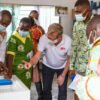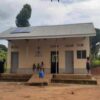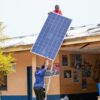Solar energy improves medical care in rural clinics
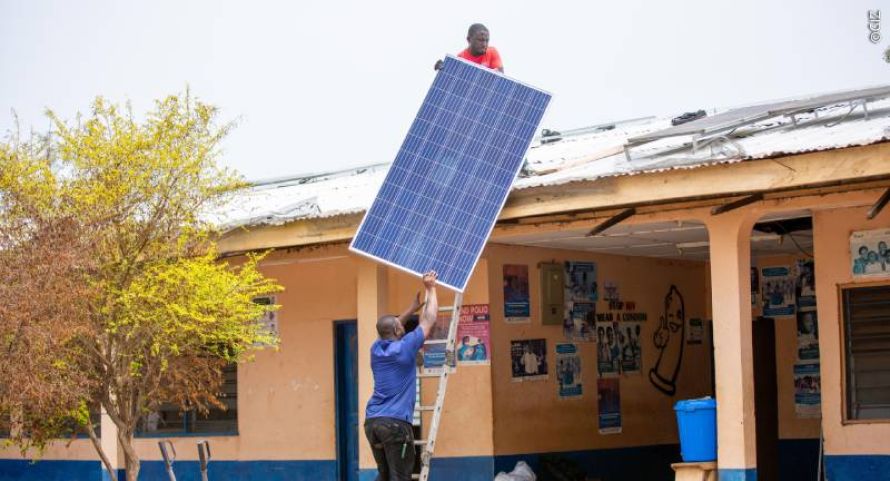
With the help of solar power, much better health services can be offered even in remote villages – for example, night-time obstetric care and refrigerators for vaccination campaigns.
In the late hours of September 2019, Aunty Ama had strong contractions and had to be taken to a clinic. The health centre in her village of Praprababida was closed at the time because not connected to the national electricity grid. Auntie Ama therefore had to travel to the hospital in Donkorkrom, a good ten kilometres away.
Because the unpaved roads to the hospital are not in good condition, driving on them is very dangerous, especially at night when there is no lighting along the roads or in the communities. When Aunty Ama arrived at the clinic, she was in a critical condition. Fortunately, the doctors managed to get the situation under control and save both of their lives. But it was nonetheless a traumatic experience for Aunty Ama.
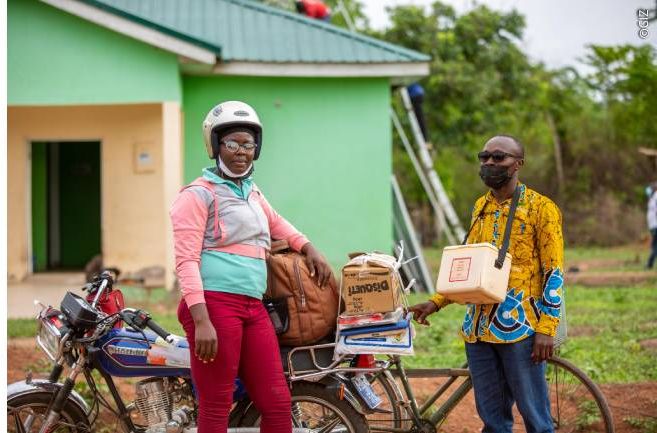
This is what often happens to pregnant women in rural areas in Ghana, especially in the non-electrified communities. They have to travel by boats or canoes, motorbikes or tricycles to visit a health centre. However, travelling over water or by motorbike at night is unsafe and dangerous.
Belinda is the manager of the Community-based Healthcare Planning and Services compound CHPS, in Praprababida. It is one among more than 500 rural CHPS clinics in Ghana established to reduce health inequalities, promote primary health care and remove geographical barriers to health care in rural communities.
But since many of the CHPS are not electrified, they cannot provide their services at night. Without electricity, Belinda cannot function reasonably. There is no light, no ultrasound machine and no cold-stored medicines.
The Ghana Health Service and GIZ want to change this situation together. As a first step, they started to have solar power systems and vaccine refrigerators installed in 30 rural clinics in Ghana in the past year.
In April, a local solar company successfully completed the installation of the solar power systems, lighting equipment and vaccine refrigerators. Since then, the rural clinics have been able to run their lighting, cooling, ventilation and sterilisation electrically in the rural clinics and provide medical services such as obstetrics and vaccination campaigns to a good standard.
In addition, the project has trained the staff and selected people from the surrounding communities, especially women, to operate and manage the system. By making the solar system available for charging mobile phones and torches, the communities can earn money for the maintenance of the new medical facilities.
In the next few months, 20 more rural sites will be electrified. This will mean that about 65,000 people will benefit from the improved medical infrastructure.
With the help of the PV systems, CHPS health workers like Belinda can now offer their services 24 hours a day, using ultrasound machines, refrigerators and sterilisers. This will reduce child and maternal mortality, increase life expectancy, improve health services and improve the working and living conditions of people in rural areas. With the help of the new infrastructure, the Ghana Health Service now plans to implement the Covid19 vaccination campaigns in rural areas. Aunt Ama can now visit the CHPS in her home village of Praprababida at any time of the day, or night. The fears associated with her second pregnancy have faded as she knows that it is possible to her to visit the hospital in her village around the clock. And she is happy that she no longer has to travel long distances to give birth safely to her second child.
by Marina Dede K. Agortimevor, Technical Advisor, GBE Ghana
